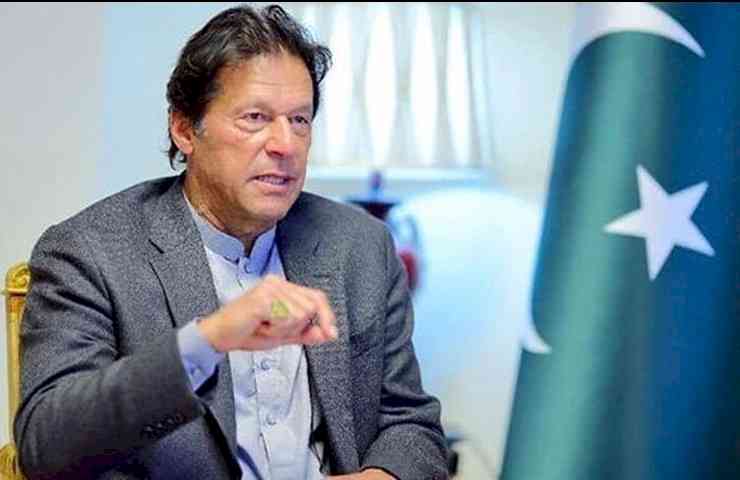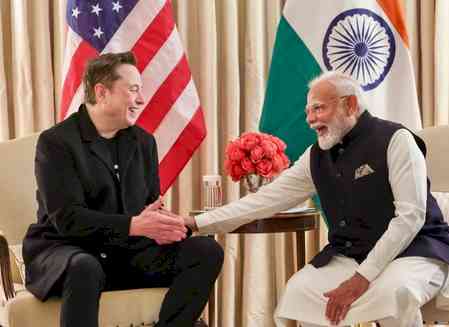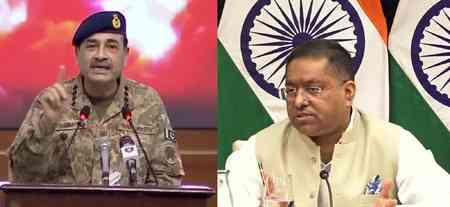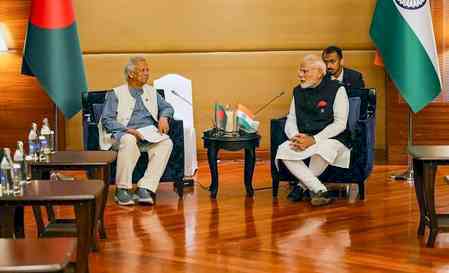With Pak army standing on neutral ground, Imran faces political revolt
Pakistan Prime Minister Imran Khan, who is known for his resilient opposition to ruling governments of the country along with being more of a celebrity sports figure, came into power in 2018 with what is believed as an extended support and facilitation of the countrys powerful military establishment.

Hamza Ameer
Islamabad, March 18 (IANS) Pakistan Prime Minister Imran Khan, who is known for his resilient opposition to ruling governments of the country along with being more of a celebrity sports figure, came into power in 2018 with what is believed as an extended support and facilitation of the countrys powerful military establishment.
But with 2022 marking four years to his ruling as the country's Prime Minister, Khan is faced with a major political challenge as over two-dozen of his party members and allies have parted ways and have vowed to support the opposition parties during the upcoming no-confidence motion against Khan in the National Assembly of Pakistan.
The politics in Pakistan has taken an ugly turn for Khan as power game and political maneuvering by opposition alliance has already started to show visible signs, sending shockwaves to the Prime Minister's seat.
As many as 24 disgruntled MNAs (Member National Assembly) from Khan's political party, the Pakistan Tehreek-e-Insaf (PTI), came out in the open and expressed their support to the no-confidence motion against Khan.
The breakaway MNAs took refuge at the Sindh House in Islamabad, after expressing concerns over their security and safety, if they stayed in the Parliament lodges.
It has been reported that there are many more allies and PTI members, who will be surfacing in the coming days, and the number could go above 40.
It has also been revealed by a PTI member that at least three federal ministers had also quit the PTI and would join the opposition alliance to oust Prime Minister Khan.
The chaotic political situation, which has led to massive deterioration within the ruling party of Khan, is believed to have happened because the primary and strongest support of the Prime Minister has parted ways, leaving Khan to fight the political battle on his own.
The military establishment, which was believed to be the driving force behind the government of Imran Khan, seems to have pulled back its support, maintaining that the army would retain the neutral ground in the current political situation unfolding in the country.
"PTI's troubles stem from its incompetent advisers and assistants," said Raja Riaz, one of the separated members of PT.
With the military establishment showing no signs of any support to Khan, the political revolt within PTI has raised uncertainty over Khan's premiership as he is currently sitting with a lead of only five votes from the National Assembly as the country's Prime Minister.
Demands of Khan's resignation are also heating up the political unrest in the capital. PTI's Ramesh Kumar revealed that 33 members of the assembly, including three federal ministers, had left the ruling party and the Prime Minister should immediately resign.
"The government has lost is opportunity to restore normalcy. Governments do not stage rallies… they hold negotiations. The government should have resolved the matter through political talks… this is not a Hitler regime," said PTI MNA, Rana Muhammad Qasim Noon.
On the other hand, government ministers are accusing their detached party members of coercion and bribery, echoing what Khan claimed recently that opposition leaders were sitting in the Sindh house with heaps of money to purchase loyalties of treasury lawmakers.
The country's political crisis has also started to affect the economic condition of Pakistan as financial markets are reacting negatively to the prevailing uncertainty.
Pakistan's deteriorating political situation, which is hinting towards another ousting of a sitting Prime Minister, has rang alarm bells in all quarters.
Experts say that Pakistan's current economic crisis, if coupled with the current political crisis, may create many doubts among the global financial bodies like the International Monetary Fund (IMF) and may have devastating outcomes for the country's future.


 IANS
IANS 










